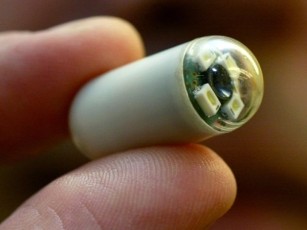
The placebo effect is a fascinating phenomenon that highlights the intricate connections between the mind and body. It occurs when a person experiences a perceived improvement in their symptoms or condition after receiving a treatment that is inactive or has no therapeutic value. This improvement is solely attributed to the individual’s belief in the treatment, rather than any specific physiological effect.
The underlying mechanism of the placebo effect is complex and not yet fully understood. However, it is believed to involve a combination of psychological, neurological, and biochemical factors. When a person believes they are receiving a treatment that will help them, their brain activates various regions associated with reward, motivation, and expectation. This activation triggers the release of natural painkillers, such as endorphins, and other neurotransmitters that can modulate pain perception and promote a sense of well-being.
Moreover, the placebo effect can also influence the body’s immune response and physiological processes. Studies have shown that placebos can lead to changes in heart rate, blood pressure, hormone levels, and even the release of inflammatory markers. These physiological changes are thought to be mediated by the brain’s complex network of communication with other bodily systems.
Interestingly, the placebo effect is not limited to sugar pills or inert substances. It can also occur when individuals receive sham surgeries, fake injections, or even undergo virtual treatments. The power of suggestion and the individual’s belief in the treatment play a significant role in triggering the placebo response.
Understanding the placebo effect has important implications for medical research and clinical practice. Researchers often use placebo-controlled trials to assess the true efficacy of new treatments by comparing them to a placebo group. In clinical settings, healthcare professionals are increasingly aware of the importance of patient beliefs, expectations, and the therapeutic context in optimizing treatment outcomes.
In conclusion, the placebo effect demonstrates the remarkable influence that our thoughts, beliefs, and expectations can have on our physical well-being. Harnessing the power of the mind-body connection may hold promising possibilities for enhancing the effectiveness of medical interventions and improving patient outcomes.
Related Stories:
https://www.betterhealth.vic.gov.au/health/conditionsandtreatments/placebo-effect
https://www.health.harvard.edu/mental-health/the-power-of-the-placebo-effect
https://www.science.org/content/article/why-do-placebos-work-scientists-identify-key-brain-pathway
https://www.ncbi.nlm.nih.gov/pmc/articles/PMC6013051/
TAKE ACTION:
https://www.ncbi.nlm.nih.gov/pmc/articles/PMC2427114/
https://www.placebo-world.com/introduction/





